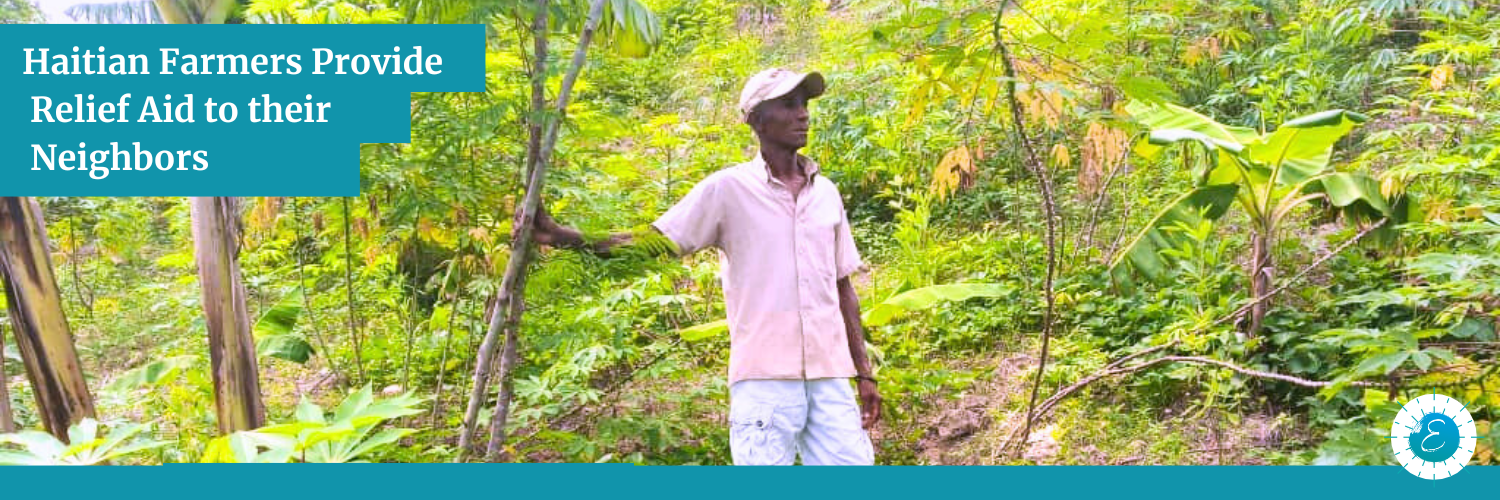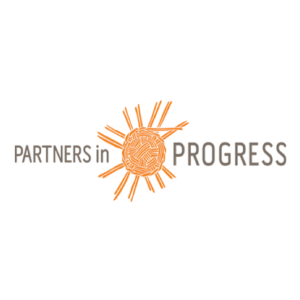Community-Led Earthquake Response in Haiti

Partners in Progress (PIP) is a nonprofit that is committed to supporting the development of Haiti by emphasizing a community-driven processes to prioritize local problems and develop solutions to address them. One of the major issues Partners in Progress is helping to address is food insecurity. Nearly half the population, 5.2 million Haitians, are experiencing acute hunger driven by violence, political instability, and climate. The problem of hunger in rural communities is compounded by the influx of those displaced by violence. There are over 313,000 internally displaced persons currently.
PIP is working to alleviate food insecurity through the Konbit Vanyan Kapab Farmer-to-Farmer Agroecology for Food Sovereignty Initiative (FAFSI) that in Haitian Creole is called: Konbit Vanyan Kapaba. A “konbit” is a traditional cooperative work group, so in English the title of their co-op means: “Strong Konbits Can.” Farmers of the Konbit Vanyan Kapab are leading food relief efforts for displaced families in six communities in the L’Artibonite and Centre departments (provinces). FAFSI provides opportunities for farmers to share knowledge and resources for testing and advancing regenerative agroecology techniques that are based on indigenous and ancestral knowledge. Through sharing and innovation in agroecology , farmers have not only been able to increase and diversify production of healthy, traditional foods, but also improve biodiversity and resilience to more frequent drought and severe storm events. Hundreds of farmers in Haiti and Uganda are now practicing agroecology .
This year, despite severe drought at the beginning of the growing season, FAFSI farmers in Haiti reported production increases of 33% to 250% for a wide variety of food crops using agro-ecology. Because of this success, FAFSI farmers are now in a position to provide food that is purchased by FAFSI partners for food relief. Farmers stage, package, and distribute food baskets that include a mix of healthy traditional Haitian foods. Food distributions began in December 2023, and have reached 610 displaced families and 3,530 individuals who have relocated to six different rural communities.
This is not the first time FAFSI farmers have taken action in times of crisis. In the middle of the pandemic, following the 2021 earthquake, a period of widespread food shortages in Haiti, PIPs Executive Director, Micheal Neumann, asked St. Geste Charles, who serves as the director of FAFSI partner, Ecole Gamaliel Communautaire Deslandes, if there was a need for emergency food relief in Deslandes. Mr. Charles replied, “The farmers are taking care of this!” When the pandemic started, FAFSI farmers distributed COVID-19 prevention information and supplies. They managed community handwashing stations and distributed alimentary aid grown in their own farms. They helped stage and distribute 19 tons of food, as well as other supplies to earthquake impacted areas. One recipient of the earthquake aid said that she was “proud to receive the aid knowing that it came from farmers in communities in Haiti.” This capacity for cooperative planning and action has been demonstrated through farmers’ leading other development initiatives such as opening of market stands, conservation and marketing of cover crop seeds, and developing value addition products such as moringa powder and turmeric powder that are processed, packaged and sold locally.Partners in Progress and their Konbit: Farmer-to-Farmer Agroecology for Food Sovereignty Initiative (FAFSI) is a great example of the resilience and capacity for Haitian communities to rise to the occasion and help their fellow Haitians even during a humanitarian crisis.
Photo credit notes:
The photo of farmer bringing food to Layaye is courtesy of Wilfranc Servil, PNDL
All other photos are courtesy of Claubert Versey, EGD

Partners in Progress
Mission
Partners in Progress works with rural based organizations to strengthen local cultural, social, and environmental assets for building sustainable community.
Vision
Rural communities are places where people want to live and raise a family; where neighbors all have responsibility to ensure the health and well-being of people and the environment and to continuously imagine and shape a prosperous, hope-filled future.
